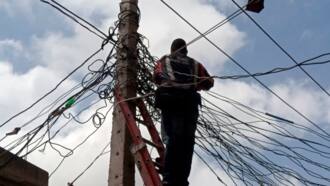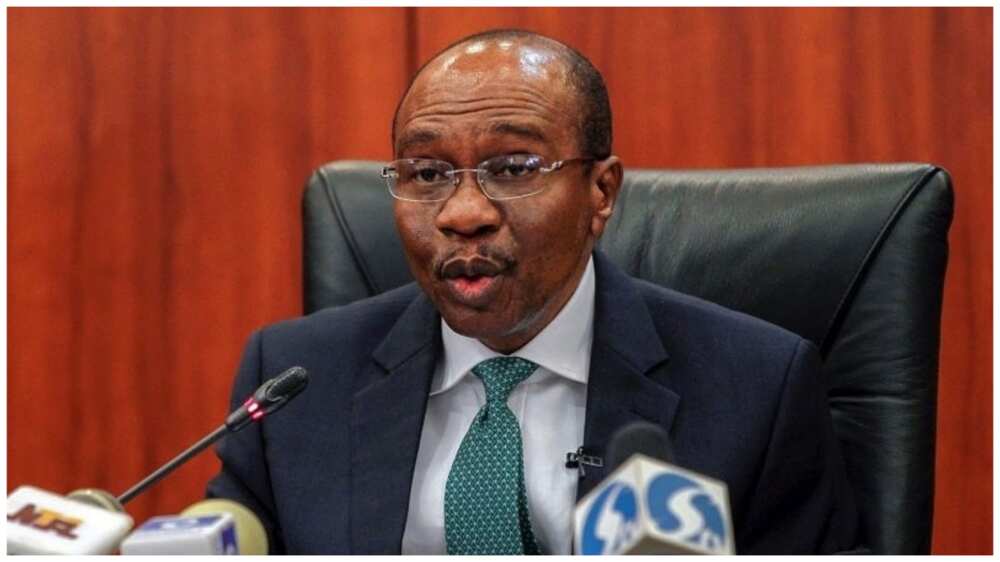What To Know About CBN’s New Monetary Policy Rate And How It Affects You
- The Monetary Policy Committee of the Central Bank of Nigeria has voted unanimously to raise the benchmark interest rate to 13% after two years of expansionary monetary policy
- This was disclosed by the Governor of the CBN, Godwin Emefiele, while reading the communique of the third monetary policy committee meeting of the year, on Tuesday, May 24
- Although this is the first-rate change since September 2020 but there are interesting things Nigerians should know about this latest development as explored in this piece
PAY ATTENTION: Click “See First” under the “Following” tab to see Legit.ng News on your Facebook News Feed!
The Central Bank of Nigeria (CBN), Monetary Policy Committee has approved a new Monetary Policy Rate (MPR) of 13 percent.
CBN governor, Godwin Emefiele, disclosed that six out of eleven of the committee members vote to increase the rate.
The Monetary Policy Rate is the rate the Central Banks of different countries are using to control the availability of assets that people can use to convert to cash, BBC Pidgin reports.

Read also
NERC set to review electricity tariffs, 6 months after carrying out a similar exercise, provides explanation

Source: Facebook
How the new MPR will affect you
If the Monetary Policy Rate (MPR) rises, all other rates will rise up and if it drops, all other rates will drop as well.
PAY ATTENTION: Follow us on Instagram - get the most important news directly in your favourite app!
Nigeria has peg interest rate for 11.5 percent for over two years.
But now, with the new MPR review, it has moved it up to 13 percent as a way of managing the rising inflation.
Following this increase, CBN has given Deposit Money Banks the go-ahead to increase lending rates to a possibly higher rate than deposit rates.
Banks are also using it to determine the fixed deposit rates and normal saving rates on accounts.
Although these new monetary rates can affect businesses for manufacturers and exporters who want to collect loans, the positive side to this development is that it can help slow down inflation.

Read also
Currency traders warn CBN naira could hit N800/$1 as Nigerians now prefer to save in dollars
What CBN rate increase means for Nigerians and the economy
The interest rate is one of the tools deployed by the central banks across the world to manage the flow of money and the productivity for countries.
A change in interest rate can affect macroeconomics and other key economic indicators like consumer spending and borrowing.
In Nigeria, the tool enables the CBN to effect changes in broad monetary policies that are designed to facilitate government budget policy.
By hiking the interest rate to 13%, it is expected to say that borrowing can become more difficult and consumers might have less money to spend.
By implication, it means that even with lower demand, and money among consumers, manufacturers of goods would be concerned about rising prices.
In effect, all of these combined together would reduce inflation pressure.
But the hike would still also fail to stop inflation if other macroeconomic indicators go wrong.

Read also
FG set to remove 5% tax on every airtime purchase by Nigerians, as it looks to raise funds for N17.1trn Budget
When the CBN interest rate was fixed at 11.5 percent, banks typically charge manufacturers and other lenders between 12 to 30 percent on loans.
With the hike in rate (13%), the charges might increase drastically.
Earlier in the year, the manufacturers association of Nigeria, said the average rate their members borrow money from banks was between 20.74percent.
It stands at 21.25 percent in 2020 and 2019.
In terms of job creation, a hike in interest rate might have a negative effect if the margin on the number of jobs would affect the number of jobs created or lost.
Unemployment rate
The unemployment rate in Nigeria has reached an average of 13.55 percent from 2006 until 2020.
that period, it rises to an all-time high of 33.30 percent in the fourth quarter of 2020.
Even if the impact is of no significance presently, the hike in the interest rate and possible fall in productivity can throw a number of people out of jobs.

Read also
For the first time in 2 years, CBN announces an increase in banks lending rate as it seeks to tackle inflation
Normally, low-interest rates can cause the stock market to go up.
Just as the market is recording depreciation when the apex bank raisess interest rates.
By implication, change in central bank's interest rates is affecting the prices of various assets such as bonds, stocks and houses.
Hot business ideas on Legit.ng
Legit.ng had reported top platforms to save money in 2021. The report listed hot business ideas in Nigeria is made up of effective, time tested business ideas that guarantee you will get a high return on investment.
These ideas are carefully selected out of numerous ones that will surely help you to make a profit.
Each of these businesses is relevant in 2021 and up to date in Nigeria.
Source: Legit.ng
